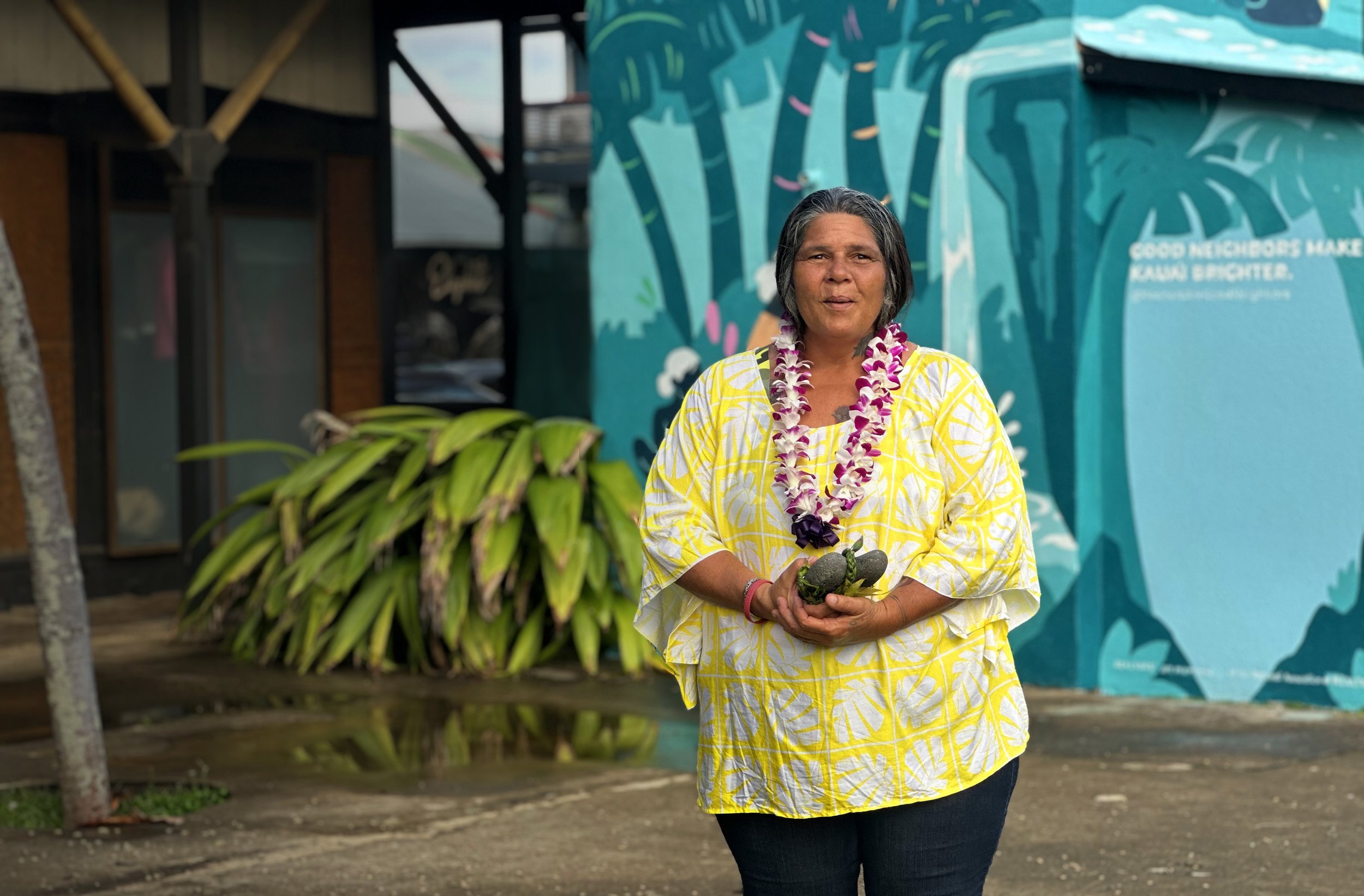Impact
What makes Hawaiʻi special is not just its natural beauty, it is the people. Hawaiʻi’s unique blend of cultures has created rich traditions that define its identity. For the spirit of Aloha to continue in the islands we need the people that live those values. PAL is proud to house local, multigenerational families, preserving Hawaiʻi’s cultural heritage.
✦
Meet Lincoln and Carrie
Lincoln and Carrie were the first houseless family that we moved into our service-enriched affordable housing community. Lincoln is Kanaka Maoli, born and raised on Kaua‘i with family tracing back to the mokupuni (island) of Ni‘ihau. They were living at the beach park and Lincoln was facing some very serious health complications. Being unsheltered, he was unable to safely undergo the necessary medical procedures.
Since joining our community, Lincoln has finally been able to get the care he needed and his recovery has gone smoothly. Lincoln and Carrie are also entrepreneurs, running a landscaping and housecleaning business respectively. We are inspired by their resilience and grateful to have them as part of our PAL family.
Meet Kim
Kim is a Cultural Practitioner and Native Hawaiian who honors her people by holding onto their important values and traditions. Kim was houseless for about five years prior to getting into a transitional housing project, but she was only allowed to be there for a certain time. With severely limited housing availability on Kauaʻi, it was perfect timing for her that a PAL apartment opened up so that she could be there instead of going back to a shelter. Kim loves her home and Kapaʻa is her ahupuaʻa (neighborhood). She was born and raised there. As a keiki, she used to walk home from school on the road that goes by the Kauhale.
As a Native Hawaiian, Kim has felt the pain of the housing tragedy deeply. “Hope is very hard to feel after they took away the land, the water, our kingdom. It is hard to know your identity — to be houseless in a place you call home, that cuts even deeper.” She feels the impact of housing and says, “We have many families, generations of families hurting and so the healing begins and the forward movement continues.”
Meet the future
As we build homes, we aren’t just thinking about relieving our current housing tragedy, we are thinking about the future; our keiki (children). Affordable housing is essential to ending childhood poverty. When a family can’t afford a home, they likely also can’t afford nutritious food, health care, childcare and education. This, coupled with the stress and trauma of housing insecurity, can make a child susceptible to long-term developmental and health problems.
We also need to create a hopeful future for our keiki as they grow into young adults. One where they don’t feel that they won’t be able to afford to live here and that they will need to move away after high school or college. One where they aren’t forced to move to the continental US to start their own families, separated from their kūpuna or spurring them to follow as well. We need to make sure there is enough housing for the next generation that will lead us forward.




